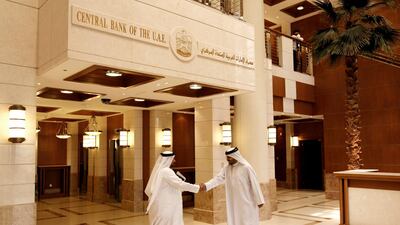The Central Bank of the UAE extended on Tuesday access to the Dh50 billion zero-cost liquidity facility under its Targeted Economic Support Scheme until the end of June 2022 to help cushion the impact the Covid-19 pandemic on the economy.
The extension of one of the main components of Tess will allow financial institutions to access the collateralised facility that allows them to provide new loans and financing to individuals, small and medium-sized enterprises and other private sector entities affected by the pandemic, the CBUAE said in a statement.
The CBUAE, which previously extended Tess until June 2021, is also extending financing for loan deferrals under the scheme until the end of this year.
The outstanding financing for Tess deferrals “shall be fully phased out” by December 31 of this year, it said.
“The extension of Tess shall allow continued support by the financial system to sectors negatively affected by the Covid-19 pandemic,” Khaled Al Tameemi, governor of the CBUAE, said. “This is done to support the recovery phase, in line with the CBUAE mandate to ensure financial and monetary stability.”
The regulator said that Tess is a “comprehensive programme” covering all its measures in response to the Covid-19 pandemic.
"While the pandemic affected the entire economy, both in the UAE and globally, the CBUAE expects financial institutions to prioritise lending through the Tess to the most negatively affected sectors, businesses and households, contributing to a balanced revival of the UAE’s diversified economy," the regulator said.
The central bank reacted quickly in March last year to limit the economic fallout from Covid-19, rolling out its scheme and offering zero-cost collateral funding to banks. It also loosened lenders' capital and liquidity buffers to ensure money keeps flowing through the economy.
The scheme is part of local and federal support packages totalling Dh388bn. The fiscal and monetary support is already yielding results and the Arab world's second-biggest economy is projected to grow 2.5 per cent this year, rising to 3.6 per cent next year, according to central bank data.
Liquidity in the UAE’s banking system has also returned to pre-Covid-19 levels as the economy continues to bounce back from the pandemic. Banks have now substantially reduced their use of Tess and the programme “has yielded positive impact”, the central bank said last month.
The amount lenders are drawing down from Tess has declined to Dh22bn, half of the maximum drawdown of about Dh44bn reached in the second quarter of last year at the height of the Covid-19 outbreak.
More than 320,000 customers – including individual clients, SMEs and other private entities – have benefitted from Tess. About 175,000 customers have taken advantage of the programme, allowing them to defer loans, according to the CBUAE.


